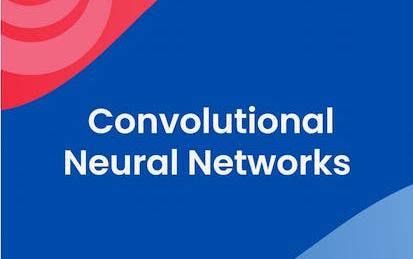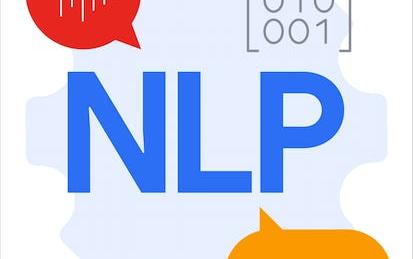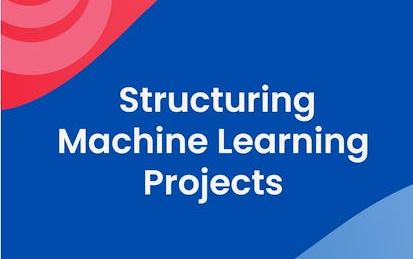

Our Courses

Python NLTK for Beginners: Customer Satisfaction Analysis
In this 2-hour course, we'll learn to analyze customer reviews for an online women's clothing shop. Our task is determining which clothing category (Tops, Bottoms, Jackets, Dresses, or Intimate) has higher customer satisfaction. The data consists of text reviews, and we'll use Python with pandas for data manipulation and the NLTK module for text preprocessing and sentiment analysis. Prior knowledge of Python and pandas is required. By the end of the course, learners will gain practical experience in text data analysis and customer sentiment evaluation.
-
Course by

-
 Self Paced
Self Paced
-
 3 hours
3 hours
-
 English
English

Deploy Bridgerton NLP SMS Text Generator
Welcome to the “Deploy Bridgerton NLP SMS Text Generator” guided project. In this project, we will deploy an NLP text generator model that sends text messages of generated words to a phone number via SMS through a python Streamlit app. The model has been trained on quotes from Netflix's popular tv show "Bridgerton". This project is an intermediate python project for anyone interested in learning about how to productionize natural language text generator models as a Streamlit app on Heroku and leveraging python modules to send SMS texts.
-
Course by

-
 Self Paced
Self Paced
-
 2 hours
2 hours
-
 English
English

Natural Language Processing in Microsoft Azure
Natural language processing supports applications that can see, hear, speak with, and understand users. Using text analytics, translation, and language understanding services, Microsoft Azure makes it easy to build applications that support natural language. In this course, you will learn how to use the Text Analytics service for advanced natural language processing of raw text for sentiment analysis, key phrase extraction, named entity recognition, and language detection. You will learn how to recognize and synthesize speech by using Azure Cognitive Services.
-
Course by

-
 8 hours
8 hours
-
 English
English

Deep Learning
The Deep Learning Specialization is a foundational program that will help you understand the capabilities, challenges, and consequences of deep learning and prepare you to participate in the development of leading-edge AI technology. In this Specialization, you will build and train neural network architectures such as Convolutional Neural Networks, Recurrent Neural Networks, LSTMs, Transformers, and learn how to make them better with strategies such as Dropout, BatchNorm, Xavier/He initialization, and more.
-
Course by

-
 Self Paced
Self Paced
-
 English
English

Natural Language Processing
Natural Language Processing (NLP) is a subfield of linguistics, computer science, and artificial intelligence that uses algorithms to interpret and manipulate human language. This technology is one of the most broadly applied areas of machine learning and is critical in effectively analyzing massive quantities of unstructured, text-heavy data.
-
Course by

-
 Self Paced
Self Paced
-
 English
English

ESG Investing: Financial Decisions in Flux
As ESG investing continues to evolve towards a global standard, certain initiatives such as the UN’s sustainable development goals, and the Paris Agreement on climate change, have already spurred significant changes across the financial markets. As the title of this specialization suggests, financial decisions by investors, as well as capital deployment by companies, organizations, and governments, have been shifting amid increasing attention to environmental, social, and governance-related concerns. By the end of this specialization, students with basic knowledge of traditional financial pr
-
Course by

-
 Self Paced
Self Paced
-
 English
English

Natural Language Processing and Capstone Assignment
Welcome to Natural Language Processing and Capstone Assignment. In this course we will begin with an Recognize how technical and business techniques can be used to deliver business insight, competitive intelligence, and consumer sentiment. The course concludes with a capstone assignment in which you will apply a wide range of what has been covered in this specialization.
-
Course by

-
 5 hours
5 hours
-
 English
English

TensorFlow: Advanced Techniques
About TensorFlow TensorFlow is an end-to-end open-source platform for machine learning. It has a comprehensive, flexible ecosystem of tools, libraries, and community resources that lets researchers push the state-of-the-art in ML, and developers easily build and deploy ML-powered applications. TensorFlow is commonly used for machine learning applications such as voice recognition and detection, Google Translate, image recognition, and natural language processing. About this Specialization Expand your knowledge of the Functional API and build exotic non-sequential model types.
-
Course by

-
 Self Paced
Self Paced
-
 English
English

AI Workflow: Machine Learning, Visual Recognition and NLP
This is the fourth course in the IBM AI Enterprise Workflow Certification specialization. You are STRONGLY encouraged to complete these courses in order as they are not individual independent courses, but part of a workflow where each course builds on the previous ones. Course 4 covers the next stage of the workflow, setting up models and their associated data pipelines for a hypothetical streaming media company. The first topic covers the complex topic of evaluation metrics, where you will learn best practices for a number of different metrics including regressi
-
Course by

-
 Self Paced
Self Paced
-
 14 hours
14 hours
-
 English
English

Fine Tune BERT for Text Classification with TensorFlow
This is a guided project on fine-tuning a Bidirectional Transformers for Language Understanding (BERT) model for text classification with TensorFlow. In this 2.5 hour long project, you will learn to preprocess and tokenize data for BERT classification, build TensorFlow input pipelines for text data with the tf.data API, and train and evaluate a fine-tuned BERT model for text classification with TensorFlow 2 and TensorFlow Hub.
-
Course by

-
 Self Paced
Self Paced
-
 3 hours
3 hours
-
 English
English

Computational Social Science
For more information please view the Computational Social Science Trailer Digital technology has not only revolutionized society, but also the way we can study it. Currently, this is taken advantage of by the most valuable companies in Silicon Valley, the most powerful governmental agencies, and the most influential social movements. What they have in common is that they use computational tools to understand, and ultimately influence human behavior and social dynamics. An increasing part of human interaction leaves a massive digital footprint behind.
-
Course by

-
 Self Paced
Self Paced
-
 English
English

JSON and Natural Language Processing in PostgreSQL
Within this course, you’ll learn about how PostgreSQL creates and uses inverted indexes for JSON and natural language content. We will use various sources of data for our databases, including access to an online API and spidering its data and storing the data in a JSON column in PostgreSQL. Students will explore how full-text inverted indexes are structured. Students will build their own inverted indexes and then make use of PostgreSQL built-in capabilities to support full-text indexes.
-
Course by

-
 Self Paced
Self Paced
-
 16 hours
16 hours
-
 English
English

Assessment for Learning
For several decades now, assessment has become an increasingly pressing educational priority. Teacher and school accountability systems have come to be based on analysis of large-scale, standardized summative assessments. As a consequence, assessment now dominates most conversations about reform, particularly as a measure of teacher and school accountability for learner performance. Behind the often heated and at times ideologically gridlocked debate is a genuine challenge to address gaps in achievement between different demographically identifiable groups of students.
-
Course by

-
 Self Paced
Self Paced
-
 14 hours
14 hours
-
 English
English

JSON and Natural Language Processing in PostgreSQL
In this third course in PostgreSQL for Everybody, learners will learn how PostgreSQL creates and uses JSON and natural language content. Learners will explore using multiple sources of data and how text is structured within PostgreSQL.
-
Course by

-
 English
English


Generative AI Essentials: Overview and Impact
With the rise of generative artificial intelligence, there has been a growing demand to explore how to use these powerful tools not only in our work but also in our day-to-day lives. Generative AI Essentials: Overview and Impact introduces learners to large language models and generative AI tools, like ChatGPT. In this course, you’ll explore generative AI essentials, how to ethically use artificial intelligence, its implications for authorship, and what regulations for generative AI could look like.
-
Course by

-
 Self Paced
Self Paced
-
 6 hours
6 hours
-
 English
English

Generative Pre-trained Transformers (GPT)
Large language models such as GPT-3.5, which powers ChatGPT, are changing how humans interact with computers and how computers can process text. This course will introduce the fundamental ideas of natural language processing and language modelling that underpin these large language models. We will explore the basics of how language models work, and the specifics of how newer neural-based approaches are built. We will examine the key innovations that have enabled Transformer-based large language models to become dominant in solving various language tasks.
-
Course by

-
 Self Paced
Self Paced
-
 13 hours
13 hours
-
 English
English

Natural Language Processing with Attention Models
In Course 4 of the Natural Language Processing Specialization, you will: a) Translate complete English sentences into Portuguese using an encoder-decoder attention model, b) Build a Transformer model to summarize text, c) Use T5 and BERT models to perform question-answering. By the end of this Specialization, you will have designed NLP applications that perform question-answering and sentiment analysis, and created tools to translate languages and summarize text! Learners should have a working knowledge of machine learning, intermediate Python including experience with a deep learning fra
-
Course by

-
 Self Paced
Self Paced
-
 35 hours
35 hours
-
 English
English

Natural Language Processing with Classification and Vector Spaces
In Course 1 of the Natural Language Processing Specialization, you will: a) Perform sentiment analysis of tweets using logistic regression and then naïve Bayes, b) Use vector space models to discover relationships between words and use PCA to reduce the dimensionality of the vector space and visualize those relationships, and c) Write a simple English to French translation algorithm using pre-computed word embeddings and locality-sensitive hashing to relate words via approximate k-nearest neighbor search.
-
Course by

-
 Self Paced
Self Paced
-
 33 hours
33 hours
-
 English
English

Natural Language Processing in TensorFlow
If you are a software developer who wants to build scalable AI-powered algorithms, you need to understand how to use the tools to build them. This Specialization will teach you best practices for using TensorFlow, a popular open-source framework for machine learning. In Course 3 of the DeepLearning.AI TensorFlow Developer Specialization, you will build natural language processing systems using TensorFlow. You will learn to process text, including tokenizing and representing sentences as vectors, so that they can be input to a neural network.
-
Course by

-
 Self Paced
Self Paced
-
 24 hours
24 hours
-
 English
English

Natural Language Processing with Probabilistic Models
In Course 2 of the Natural Language Processing Specialization, you will: a) Create a simple auto-correct algorithm using minimum edit distance and dynamic programming, b) Apply the Viterbi Algorithm for part-of-speech (POS) tagging, which is vital for computational linguistics, c) Write a better auto-complete algorithm using an N-gram language model, and d) Write your own Word2Vec model that uses a neural network to compute word embeddings using a continuous bag-of-words model. By the end of this Specialization, you will have designed NLP applications that perform question-answering and se
-
Course by

-
 Self Paced
Self Paced
-
 31 hours
31 hours
-
 English
English

Natural Language Processing on Google Cloud
This course introduces the products and solutions to solve NLP problems on Google Cloud.
-
Course by

-
 Self Paced
Self Paced
-
 13 hours
13 hours
-
 English
English

Natural Language Processing with Sequence Models
In Course 3 of the Natural Language Processing Specialization, you will: a) Train a neural network with word embeddings to perform sentiment analysis of tweets, b) Generate synthetic Shakespeare text using a Gated Recurrent Unit (GRU) language model, c) Train a recurrent neural network to perform named entity recognition (NER) using LSTMs with linear layers, and d) Use so-called ‘Siamese’ LSTM models to compare questions in a corpus and identify those that are worded differently but have the same meaning. By the end of this Specialization, you will have designed NLP applications that perfo
-
Course by

-
 Self Paced
Self Paced
-
 24 hours
24 hours
-
 English
English

AI for Medical Diagnosis
AI is transforming the practice of medicine. It’s helping doctors diagnose patients more accurately, make predictions about patients’ future health, and recommend better treatments. As an AI practitioner, you have the opportunity to join in this transformation of modern medicine. If you're already familiar with some of the math and coding behind AI algorithms, and are eager to develop your skills further to tackle challenges in the healthcare industry, then this specialization is for you. No prior medical expertise is required!
-
Course by

-
 Self Paced
Self Paced
-
 20 hours
20 hours
-
 English
English

Introduction to Machine Learning
This course will provide you a foundational understanding of machine learning models (logistic regression, multilayer perceptrons, convolutional neural networks, natural language processing, etc.) as well as demonstrate how these models can solve complex problems in a variety of industries, from medical diagnostics to image recognition to text prediction. In addition, we have designed practice exercises that will give you hands-on experience implementing these data science models on data sets.
-
Course by

-
 Self Paced
Self Paced
-
 21 hours
21 hours
-
 English
English



